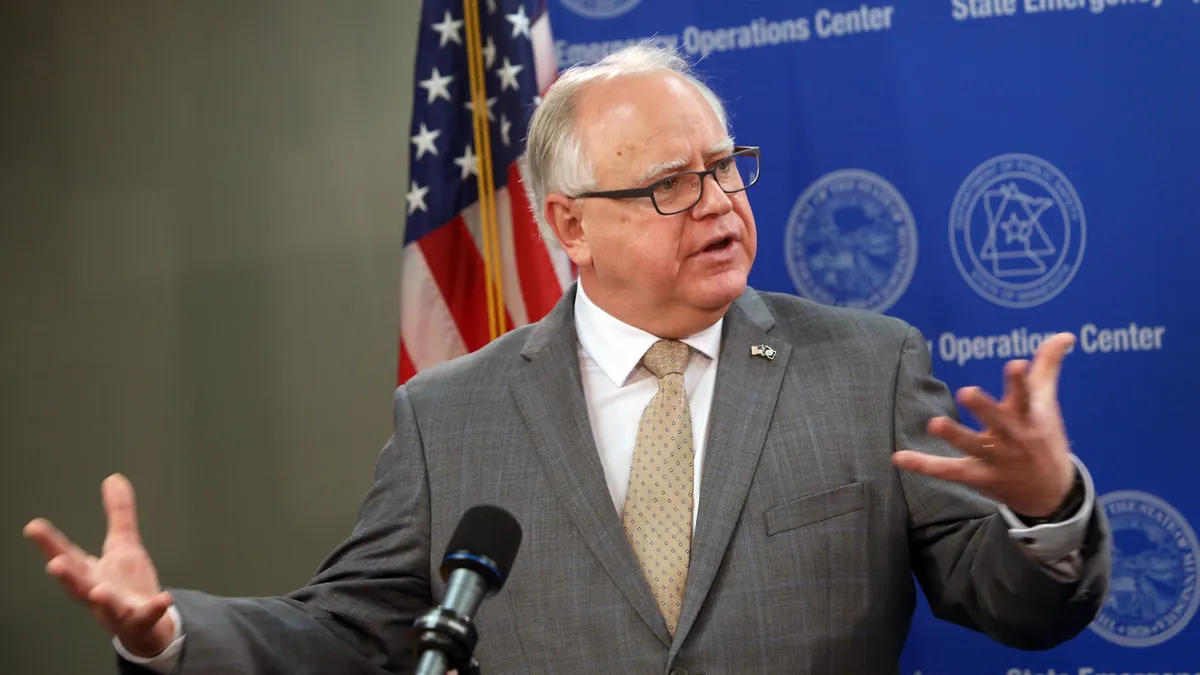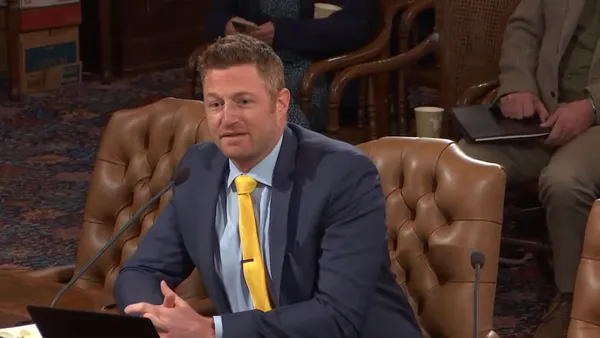Minnesota Gov. Tim Walz is expected to soon sign a bill requiring utilities in the state to provide electricity from 100% carbon-free sources by 2040. The bill also calls for utilities to generate at least 55% of their electricity from renewable energy sources by 2035.
Electricity generated from landfill gas and anaerobic digestion are named as approved renewable energy technologies, but electricity generated from incinerators operating in “environmental justice areas” will not be counted toward the goal. Wind, solar, and certain hydropower and hydrogen energy sources are also considered renewable in the bill.
The publicly-owned Hennepin Energy Recovery Center in Minneapolis is one incinerator that’s operating in what the bill defines as an environmental justice area. Local environmentalists have been fighting for years to close it, Inside Climate News reported.
The bill defines EJ areas as places where at least 40% of residents are not white, 35% of households have an income that’s below 200% of the federal poverty line, and 40% or more of residents over age 5 have “limited” English proficiency. Areas the U.S. state defines as “Indian country” are also considered EJ areas.
Some of the state’s largest electric utilities, like Xcel Energy and Minnesota Power, have already pledged to move to carbon-free energy, but this bill speeds up that goal by 10 years, Minnesota Public Radio reported. The bill calls for public utilities operating in the state to be 80% carbon-free and other electric utilities to be 60% carbon-free by 2030. All utilities must be 90% carbon-free by 2035 before ultimately hitting the 100% mark in 2040, according to the bill.
The bill gives utilities some leniency if they demonstrate to state regulators that they can’t offer affordable power while working toward the benchmarks. It also allows utilities to buy renewable energy credits to meet the standard instead of generating the energy themselves.
Patrick Serfass, executive director of the American Biogas Council, said the bill will incentivize more biogas-related electricity projects, “which means the recycling of more organic material and more renewable electricity in the state. Those are all good things,” he said. ABC sees significant potential for biogas production in Minnesota.
The bill also aims to streamline the permitting process for new energy projects in the state and calls for higher minimum wage requirements for workers.















